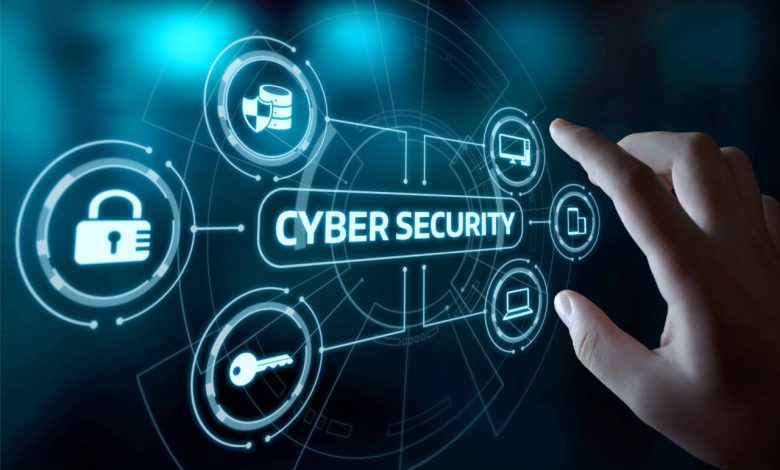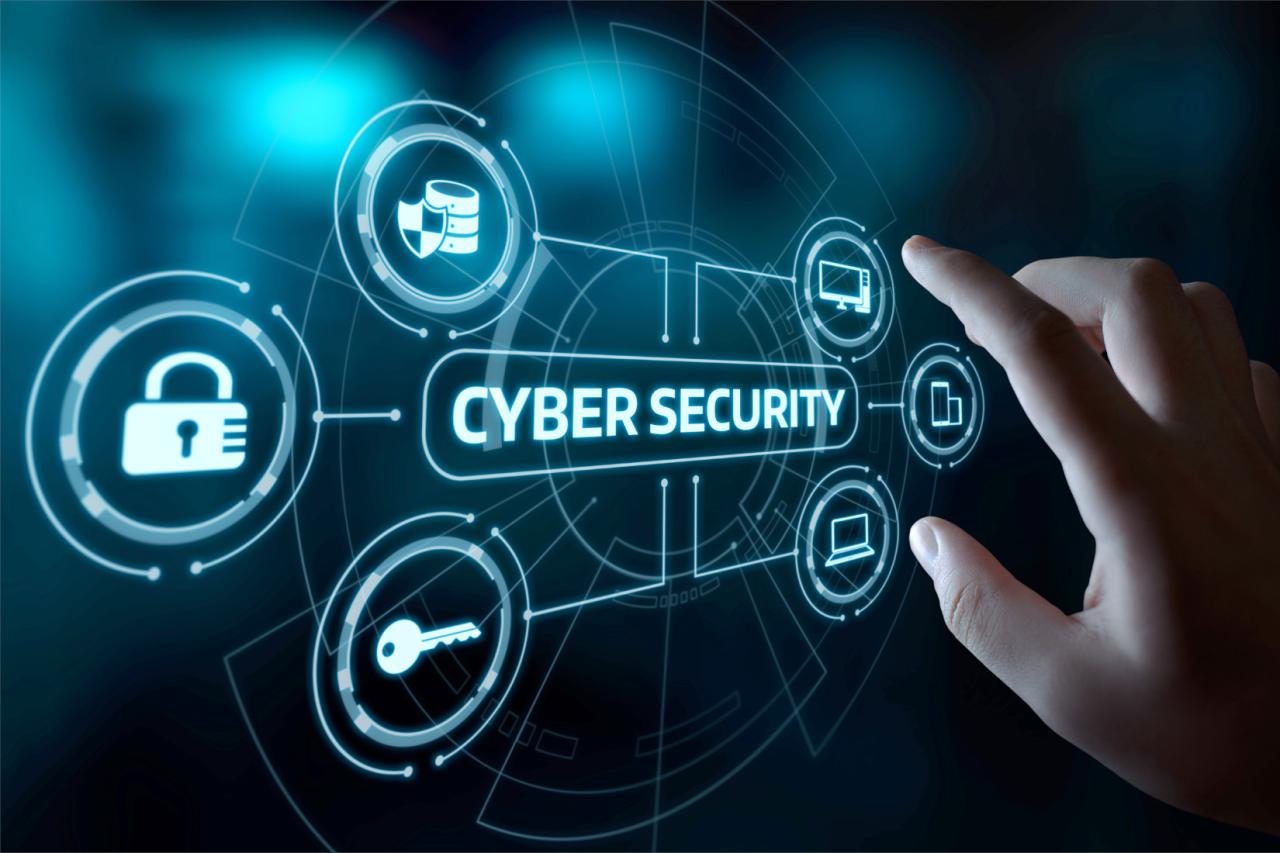How To Get Certified In Cybersecurity Step-By-Step Guide

How to Get Certified in Cybersecurity: Step-by-Step Guide – How to Get Certified in Cybersecurity Step-by-Step Guide provides a comprehensive framework for individuals seeking to enhance their qualifications in an increasingly critical field. As the digital landscape evolves, the importance of cybersecurity certification cannot be overstated, serving as a testament to one’s proficiency and commitment to protecting sensitive information. This guide will navigate through the myriad of certification options available, prerequisites, and effective study strategies, ensuring that you are well-prepared for a successful career in cybersecurity.
With various organizations offering diverse certifications ranging from entry-level to advanced tiers, understanding the landscape is essential. This guide will help you identify the right certification path, equipping you with the knowledge and resources necessary to excel and advance in the field of cybersecurity.
Introduction to Cybersecurity Certification

In today’s increasingly digital landscape, cybersecurity has become an essential component of organizational safety and integrity. As cyber threats continue to grow in sophistication and frequency, the demand for skilled cybersecurity professionals has skyrocketed. Cybersecurity certifications serve as a critical benchmark for assessing the knowledge, skills, and competence of individuals in this field, thereby enhancing their employability and credibility.
Various types of cybersecurity certifications are available to cater to the diverse needs of professionals at different stages of their careers. These certifications range from foundational knowledge to advanced specializations, covering various aspects of cybersecurity, including risk management, network security, and incident response. Recognizing and obtaining the right certification can significantly impact a professional’s career trajectory, providing them with the necessary tools to tackle cybersecurity challenges effectively.
Types of Cybersecurity Certifications, How to Get Certified in Cybersecurity: Step-by-Step Guide
The landscape of cybersecurity certifications is vast, encompassing various programs tailored to different roles and expertise levels. Each certification focuses on specific areas within cybersecurity, ensuring that professionals can find a program that aligns with their career goals. Below are some of the most recognized cybersecurity certifications, categorized by their focus areas:
- Vendor-Specific Certifications: These certifications are often offered by technology companies and focus on their specific products and security measures. Examples include Cisco’s CCNA Security and Microsoft’s Certified: Azure Security Engineer Associate.
- General Certifications: These certifications provide a broad understanding of cybersecurity principles and practices. Prominent examples include CompTIA Security+, Certified Information Systems Security Professional (CISSP), and Certified Ethical Hacker (CEH).
- Specialized Certifications: Aimed at specific roles within cybersecurity, these certifications delve deeper into niche areas. Examples include Certified Information Systems Auditor (CISA) for auditing, Certified Information Security Manager (CISM) for management, and Offensive Security Certified Professional (OSCP) for penetration testing.
The primary goal of obtaining a cybersecurity certification is to validate one’s expertise in the field, providing assurance to employers of an individual’s capability to protect sensitive information and respond to emerging cyber threats. Certifications also facilitate continuous professional development, enabling individuals to stay updated with the latest trends and technologies.
“A certification represents a commitment to professional development and a significant investment in one’s career.”
Researching Certification Options
Cybersecurity is a rapidly evolving field, and obtaining the right certification can significantly enhance your skills and employability. With numerous certification programs available, it’s essential to explore the various organizations that offer these credentials and understand the distinctions between entry-level and advanced certifications. This section provides a detailed overview of the certification landscape, focusing on the options available, their costs, and time commitments.
Organizations Offering Cybersecurity Certifications
Several prominent organizations provide widely recognized cybersecurity certifications, each with unique focuses and benefits. Understanding these organizations can help you make informed decisions regarding your certification path.
- CompTIA: Known for its vendor-neutral certifications, CompTIA offers foundational certifications such as Security+ for entry-level professionals. It also provides more specialized certifications like CySA+ and CASP+ for advanced practitioners.
- (ISC)²: This organization is well-regarded for its Certified Information Systems Security Professional (CISSP) certification, which is targeted at experienced cybersecurity practitioners. They also offer entry-level certifications like SSCP.
- ISACA: Specializing in governance, risk management, and compliance, ISACA offers certifications such as Certified Information Security Manager (CISM) and Certified Information Systems Auditor (CISA), both of which cater to advanced professionals.
- EC-Council: Renowned for its Certified Ethical Hacker (CEH) certification, EC-Council focuses on offensive security skills. They also offer a range of other certifications for different skill levels.
- SANS Institute: Recognized for its rigorous training programs, SANS offers a variety of certifications that cover a broad spectrum of cybersecurity skills and knowledge, from basic to advanced levels.
Differences Between Entry-Level and Advanced Certifications
Recognizing the distinctions between entry-level and advanced cybersecurity certifications is crucial for tailoring your educational journey to meet your career goals. Entry-level certifications typically focus on foundational skills and knowledge, suitable for those new to the field, while advanced certifications require more specialized knowledge and experience.
- Entry-Level Certifications: These certifications, such as CompTIA Security+ and (ISC)² SSCP, are designed for individuals with minimal experience. They cover basic concepts in cybersecurity, network security, and risk management.
- Advanced Certifications: Certifications like CISSP and CISM cater to seasoned professionals who have demonstrated significant expertise in the field. They often require several years of experience and cover complex topics like security architecture, management, and governance.
Cost and Time Commitments for Certification Programs
The financial investment and time required to achieve cybersecurity certifications can vary significantly depending on the program. Understanding these factors can aid in budgeting and planning your certification path.
- Cost: Certification costs can range from $200 for entry-level programs, such as CompTIA Security+, to over $1,000 for advanced certifications like CISSP. Additional costs may include study materials, training courses, and exam retakes.
- Time Commitments: Entry-level certifications generally require a few weeks of study, while advanced certifications often necessitate several months of preparation. The time commitment can also vary based on the individual’s prior knowledge and experience.
Investing in cybersecurity certification is an essential step toward enhancing your skills and advancing your career in this dynamic field.
Prerequisites for Certification

Embarking on a cybersecurity certification journey requires careful consideration of the prerequisites that can enhance your likelihood of success. Understanding these foundational elements not only prepares candidates for the demands of certification exams but also equips them with the essential skills needed in the field of cybersecurity.
Typically, cybersecurity certifications have specific prerequisites that candidates are expected to meet. These may include prior educational qualifications, relevant work experience, or completion of foundational courses. Each certification body defines its criteria, reflecting the complexity and depth of knowledge required for its respective certification.
Recommended Foundational Knowledge and Skills
Before pursuing a cybersecurity certification, it is crucial to have a solid understanding of certain foundational topics. Familiarity with these areas will significantly bolster your confidence and capability in handling the associated material. The following domains are commonly recommended:
- Networking Fundamentals: A strong grasp of networking principles, including TCP/IP, subnets, and routing protocols, is essential.
- Operating Systems: Knowledge of how different operating systems (Windows, Linux, macOS) function and their security features is important.
- Security Concepts: Understanding core concepts such as confidentiality, integrity, availability, and various types of security controls is fundamental.
- Programming/Scripting: Familiarity with basic programming or scripting languages (like Python or Bash) can aid in automating tasks and understanding vulnerabilities.
- Risk Management: Knowledge of risk assessment methodologies and frameworks is critical for understanding how to mitigate vulnerabilities effectively.
Resources for Gaining Necessary Experience or Knowledge
Acquiring the necessary knowledge and experience can be achieved through various means, ensuring a well-rounded preparation for certification exams. Engaging with these resources can help bolster your foundational skills and credentials.
- Online Courses: Platforms such as Coursera, edX, and Udemy offer a multitude of courses focused on cybersecurity fundamentals and specialized topics.
- Books and Study Guides: Comprehensive literature such as “CompTIA Security+ Study Guide” or “The Web Application Hacker’s Handbook” provide in-depth knowledge and exam preparation.
- Certification Bootcamps: Intensive bootcamps designed for specific certifications can provide hands-on experience and rapid learning opportunities.
- Networking and Communities: Joining forums like Reddit’s r/cybersecurity or organizations such as ISC² can provide valuable insights and peer support.
- Practical Experience: Participating in labs, simulations, or internships can offer real-world experience that is invaluable for understanding theoretical concepts.
“A strong foundation in cybersecurity principles not only prepares you for certification but is instrumental in building a successful career in the field.”
Study Materials and Resources
In the pursuit of cybersecurity certification, selecting the right study materials and resources is crucial for effective preparation. A well-rounded approach that combines books, online courses, and hands-on training can significantly enhance learning and retention. Additionally, leveraging community support through study groups or forums can provide invaluable insights and encouragement.
Various resources are available to cater to different learning styles and budgets. Below is a curated list of recommended books, online courses, and training programs that cover essential topics in cybersecurity certification.
Recommended Study Materials
The following resources are highly regarded in the cybersecurity community for their effectiveness in preparing candidates for certification examinations.
- Books:
- “CompTIA Security+ Study Guide” by Emmett Dulaney
- “CISSP (ISC)2 Certified Information Systems Security Professional Official Study Guide” by James Michael Stewart
- “The Web Application Hacker’s Handbook” by Dafydd Stuttard and Marcus Pinto
- Online Courses:
- Coursera’s “Introduction to Cybersecurity Specialization” by NYU
- edX’s “Cybersecurity Fundamentals” by Rochester Institute of Technology
- Udemy’s “The Complete Cyber Security Course: Hackers Exposed!”
- Training Programs:
- CertMaster Learn for CompTIA certifications
- Cybrary’s free cyber security training
- SANS Institute’s training programs and certification boot camps
Benefits of Joining Study Groups or Forums
Engagement with peers through study groups or forums can provide numerous advantages. These platforms foster collaboration, enable the sharing of resources, and allow for the discussion of complex topics.
Joining study groups enhances accountability and motivation, as members support each other in their study goals.
Involvement in online forums, such as Reddit’s r/cybersecurity or TechExams.net, offers access to a wealth of shared experiences and resources. Participants can ask questions, exchange study tips, and even participate in mock exams, which can solidify understanding and confidence.
Comparison of Free versus Paid Resources
Choosing between free and paid resources is a common consideration for many aspiring cybersecurity professionals. While paid materials often provide structured learning and comprehensive coverage, free resources can still offer substantial value, especially for those on a budget.
| Resource Type | Free Resources | Paid Resources |
|---|---|---|
| Books | Public domain books, library access | Latest editions of textbooks, specialized guides |
| Online Courses | Coursera free courses, YouTube tutorials | Comprehensive paid courses with certifications |
| Training Programs | Webinars, free workshops | Intensive boot camps, professional training sessions |
Investing in study materials, whether free or paid, is a critical step in the journey towards obtaining cybersecurity certification. Making informed choices based on personal learning preferences and resources available will pave the way for successful certification achievement.
Creating a Study Plan
Establishing a structured study plan is crucial for success in obtaining cybersecurity certification. A well-designed plan not only organizes your study activities but also helps in effectively managing your time and resources. By following a methodical approach, you can enhance your understanding of complex topics, ensuring that you are well-prepared for the certification exam.
A comprehensive study plan should include specific goals, timelines, and effective study techniques tailored for cybersecurity topics. Setting clear objectives will keep you motivated and accountable throughout your preparation journey.
Step-by-Step Plan for Exam Preparation
Creating a study plan involves several key steps. Begin by outlining your overall study schedule, which should incorporate the following elements:
- Assess Your Current Knowledge: Evaluate your existing skills and knowledge in cybersecurity to identify gaps that need to be addressed.
- Set Specific Goals: Define clear, measurable goals such as completing specific chapters in study materials or finishing practice exams by certain dates.
- Establish a Timeline: Allocate weeks or months leading up to the exam date to cover all relevant topics. Break down your timeline into manageable sections.
- Include Review Periods: Schedule regular review sessions to reinforce the material you’ve studied. This can enhance retention and comprehension.
- Monitor Progress: Keep track of your study sessions and make adjustments to your plan as necessary. Regularly assess your understanding of the material through quizzes or practice tests.
The importance of setting specific study goals cannot be overstated. Goals act as benchmarks for your progress, helping to maintain focus and motivation.
Effective Study Techniques for Cybersecurity
Different study techniques can be employed to enhance learning, especially in a complex field like cybersecurity. The following methods can be highly effective:
“Effective learning techniques, when combined with a structured study plan, significantly improve retention and understanding of cybersecurity concepts.”
- Active Learning: Engage with the material through activities such as hands-on labs, simulations, and interactive quizzes. This method promotes deeper understanding and practical skills.
- Flashcards: Utilize flashcards for memorizing key terms, definitions, and concepts. This technique is particularly useful for quick revisions and self-testing.
- Group Study: Collaborate with peers to discuss complex topics. Group study sessions can provide new insights and clarify doubts through discussion.
- Online Resources: Leverage online platforms, forums, and webinars that offer additional insights and explanations on cybersecurity topics. They can provide valuable perspectives beyond traditional study materials.
- Practice Exams: Take practice tests to familiarize yourself with the exam format and identify areas needing further review. This strategy will help build confidence as the exam date approaches.
Implementing these effective study techniques can greatly benefit your preparation, ensuring a thorough understanding of the cybersecurity domain as you work towards your certification.
Taking Practice Exams
Taking practice exams is an essential step in preparing for cybersecurity certification. These exams not only familiarize candidates with the exam structure but also help identify areas that require further study. Engaging with practice materials enhances confidence and can significantly improve performance on the actual test day.
The benefits of taking practice exams extend beyond mere familiarity with the question format. They serve as a diagnostic tool, enabling candidates to assess their understanding of the material and focus on weak areas. Practice exams also help manage time effectively, as candidates learn to navigate the pressure of timed tests. Furthermore, consistent practice can lead to a better retention of information, ensuring that candidates are well-prepared for the challenges of the certification exam.
Finding Reliable Practice Exams
Identifying trustworthy sources for practice exams is crucial for effective preparation. Reliable practice exams should closely mimic the actual certification tests, both in format and content. Here are strategies for finding reputable resources:
- Look for official practice tests provided by the certification body, as these are designed to reflect the actual exam.
- Research third-party vendors with positive reviews from past candidates, as they often create high-quality practice materials.
- Participate in online forums or study groups where members share resources and recommendations for practice exams.
- Utilize educational platforms that offer trial versions of their practice exams to assess their relevance and quality.
Comparison of Mock Exam Platforms
When selecting a platform for practice exams, candidates can benefit from comparing different offerings. The following table Artikels key features of several well-known platforms that provide mock exams for cybersecurity certifications:
| Platform | Type of Exams | Price | Features |
|---|---|---|---|
| CompTIA | Official Practice Exams | Varies | Aligned with exam objectives, performance tracking |
| Transcender | Comprehensive Mock Exams | Subscription-Based | Adaptive learning, detailed explanations |
| Udemy | Video Courses with Practice Questions | Varies | Lifetime access, instructor feedback |
| ExamCompass | Free Practice Questions | Free | Full-length exams, categorized questions |
Utilizing these platforms will enhance your preparation strategy, allowing you to approach your certification exam with confidence.
Registering for the Exam
The exam registration process is a crucial step in your journey towards obtaining a cybersecurity certification. Understanding how to properly register can ensure that you are prepared and can secure your desired exam date and location.
The registration process may vary slightly depending on the certification body, but generally includes creating an account, selecting your exam, and providing necessary details. Before beginning your registration, it is essential to gather all required documentation and be aware of any fees associated with the exam. This section details these aspects to facilitate a smooth registration experience.
Registration Process and Requirements
To successfully register for a cybersecurity certification exam, follow these key steps:
1. Create an Account: Most certification bodies require you to create a personal account on their website. This account will be used to manage your exam registration and track your progress.
2. Select Your Exam: After logging in, navigate to the exam section, where you can choose from various certification options available.
3. Complete Required Documentation: Be prepared to provide certain documentation, which may vary by certification. Common requirements include:
– Proof of identity (government-issued ID)
– Prerequisite certifications or degrees
– Employment verification letters if required by the certification body
4. Pay Registration Fees: Each certification exam has associated fees that must be paid at the time of registration. Ensure that you are aware of these fees, as they can vary significantly. For example, some popular certifications like CompTIA Security+ may have fees ranging from $300 to $400.
5. Confirm Registration: Once you have completed the previous steps, review all entered information and submit your registration. A confirmation will be sent to your registered email address, detailing your exam date and location.
Selecting Exam Date and Location
Choosing the right date and location for your exam is an important consideration that can affect your performance.
– Consider Exam Centers: Research various exam centers available in your area. Some certification bodies offer multiple locations, providing flexibility. Consider proximity, accessibility, and comfort of the examination center.
– Check Exam Availability: Once you have identified potential exam centers, check the availability of exam dates. Some certifications may have limited slots, so early registration is advisable.
– Personal Schedule: Align your exam date with your personal schedule to ensure you have sufficient time for preparation. Avoid significant life events or work commitments that could distract you from your studies.
– Consider Time of Day: If you have a preference for taking exams in the morning or afternoon based on your peak performance times, choose an exam slot accordingly.
“Effective planning for your exam date and location can significantly reduce stress and enhance performance.”
Exam Day Preparation: How To Get Certified In Cybersecurity: Step-by-Step Guide
Preparing for exam day is a crucial step in your journey to obtaining cybersecurity certification. The right preparation can significantly improve your confidence and performance during the exam. By ensuring that you have all necessary materials and strategies in place, you can set yourself up for success when it matters most.
Checklist of Items to Bring on Exam Day
It is essential to have a well-prepared checklist to avoid any last-minute stress on exam day. The following items should be included in your exam day preparation:
- Government-issued photo ID (e.g., driver’s license or passport) to verify your identity.
- Exam confirmation email or ticket that provides details about the testing location and time.
- Approved calculator, if permitted by the exam guidelines.
- Writing materials such as scratch paper and pens, as allowed by the testing center.
- Comfortable clothing to ensure you can concentrate without physical discomfort.
- Water bottle or snacks to keep your energy up, if allowed.
Strategies for Managing Test Anxiety and Staying Focused
Managing test anxiety is vital for maintaining focus and performing at your best. Various strategies can help you remain calm and collected during the exam.
- Practice deep breathing techniques to reduce anxiety and clear your mind.
- Visualize success by imagining yourself confidently answering questions and completing the exam.
- Engage in positive self-talk to reinforce your preparation and capability.
- Arrive early at the exam center to familiarize yourself with the environment and reduce last-minute stress.
Time Management During the Exam
Effective time management is essential for maximizing your performance during the exam. Implementing strategic techniques can help ensure you complete all questions within the allotted time.
- Familiarize yourself with the exam format and allocate specific time limits for each section.
- Start with questions you find easiest to build confidence and momentum.
- Regularly check the time and adjust your pace accordingly to avoid rushing at the end.
- If you encounter a difficult question, move on and return to it later if time permits.
“Effective preparation on exam day can significantly enhance your chances of success.”
Maintaining Certification
The field of cybersecurity is constantly evolving, making it imperative for certified professionals to engage in ongoing education and skill development. Maintaining certification not only enhances an individual’s knowledge base but also ensures that they remain competitive and effective in their roles. The relevance of continuing education cannot be overstated, as it directly correlates with the ability to respond to new threats and technologies.
Continuing education is essential for cybersecurity professionals, as it allows individuals to stay abreast of the latest trends, tools, and threats in the field. This ongoing learning is often a requirement for maintaining certifications. Most certifying bodies mandate periodic renewals, which typically involve completing a specific number of continuing education units (CEUs) or professional development units (PDUs) within a set timeframe.
Recertification Requirements
Various certification programs stipulate specific requirements that certified individuals must fulfill to maintain their status. These requirements can differ widely between certifying organizations and certification types.
Typically, professionals are required to accumulate a predefined number of CEUs over a specified period, such as three years. The CEUs can be earned through various activities, including attending workshops, enrolling in relevant courses, participating in webinars, and engaging in industry conferences.
The following points Artikel common recertification requirements:
- Completion of a minimum number of CEUs, generally ranging from 20 to 120, depending on the certification.
- Participation in continuing education programs offered by authorized organizations.
- Submission of evidence of professional development activities, which may include certificates of completion or transcripts.
- Payment of a renewal fee, which is often required to process the recertification.
Professional Development Opportunities
Post-certification, there are numerous professional development opportunities available that can enhance a cybersecurity professional’s expertise and career prospects. These opportunities not only aid in maintaining certifications but also provide valuable skills applicable to various roles within the cybersecurity landscape.
Engaging in professional development can take various forms, including:
- Attending industry conferences and workshops, which provide insights into the latest trends and technologies.
- Enrolling in advanced courses or specialized training programs targeting emerging technologies such as cloud security or ethical hacking.
- Participating in forums or user groups that focus on cybersecurity topics, allowing professionals to exchange knowledge and expertise.
- Contributing to research or publications in cybersecurity, which can enhance one’s visibility and professional credibility.
Active participation in these professional development activities not only fulfills recertification requirements but also significantly enriches a professional’s skill set, thereby improving job performance and career advancement potential. Adapting to the dynamic nature of the cybersecurity field is essential for long-term success and relevance.
Wrap-Up
In conclusion, embarking on the journey to obtain a cybersecurity certification is a significant step toward achieving professional growth in an essential industry. By following the Artikeld steps—from researching certification options to creating a solid study plan—you will greatly enhance your chances of success. Remember, the pursuit of knowledge and continuous learning is the key to maintaining your certification and staying relevant in the ever-evolving field of cybersecurity.
Quick FAQs
What are the most recognized cybersecurity certifications?
The most recognized certifications include CompTIA Security+, Certified Information Systems Security Professional (CISSP), Certified Ethical Hacker (CEH), and Cisco Certified CyberOps Associate.
How much does it typically cost to obtain a cybersecurity certification?
The costs can vary widely, ranging from $200 to over $1,000 depending on the certification and associated study materials.
Is prior experience necessary to obtain a cybersecurity certification?
While some entry-level certifications do not require prior experience, having foundational knowledge and skills can significantly enhance your chances of success.
How often do I need to renew my cybersecurity certification?
Most certifications require renewal every two to three years, often involving continuing education credits or retaking exams.
What study methods are most effective for cybersecurity certification exams?
Effective study methods include utilizing online courses, participating in study groups, practicing with mock exams, and reviewing relevant literature.






